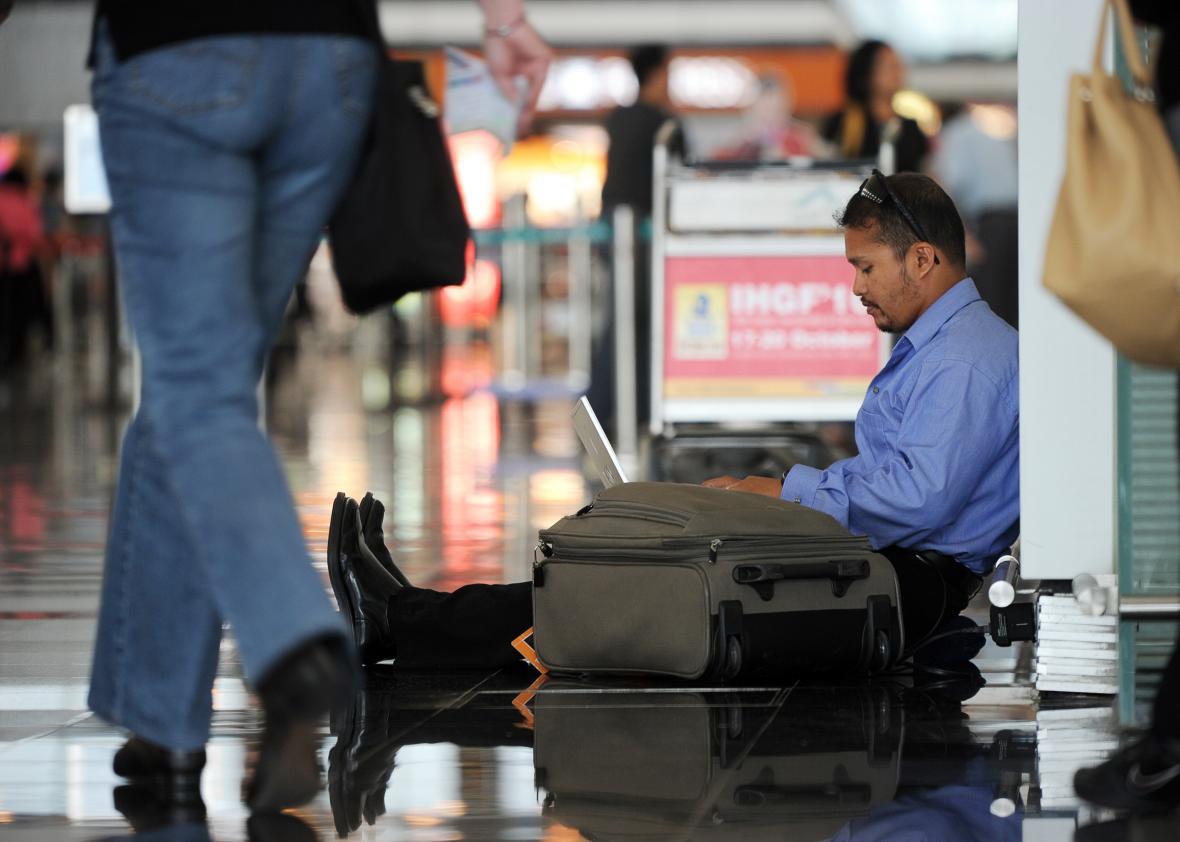Nancy Youssef of BuzzFeed reports that the ban on a number of electronic devices in the cabins of direct flights to the United States from 10 Middle Eastern airports was in response to “increased chatter picked up in recent weeks from militants saying they want to hide explosives in computers,” according to an unnamed U.S. official. The new policy was reportedly pushed by the White House before Department of Homeland Security Secretary John Kelly signed on to it.
This goes beyond the statements put out by DHS so far, which have pointed only to a number of recent plots against airliners, none of them actually involving electronics in the cabins of U.S.–bound passenger planes. Officials have told other outlets that the policy was not based on a new, specific threat, though it’s not clear just how “specific” the chatter discussed in the BuzzFeed article was. However, the British government announced on Tuesday that it is also instituting a ban on large electronic devices on inbound flights from six countries in the Middle East and North Africa, some of them overlapping with the U.S. list. The Canadian transport minister says it may follow suit as well after consultations with Kelly. And the threat was compelling enough that Democrat Adam Schiff—ranking member of the House Intelligence Committee and one of the Trump administration’s most outspoken critics—said that a DHS briefing convinced him to “fully support the new security precautions.”
Still, coming on the heels of the Muslim travel ban, many of us are not inclined to give the Trump administration the benefit of the doubt on any new restrictions on travel from the Middle East. (The fact that none of the countries that apparently pose this new threat were included in the travel ban should raise even more questions about the criteria used to create that list.) And a number of things about the device ban don’t make a lot of sense. Why couldn’t a laptop converted into a bomb work just as well in the cargo hold as in the cabin? Why couldn’t someone plotting such an attack simply take a connecting flight through another airport? How come Britain’s restrictions don’t apply to the UAE, Qatar, Kuwait, or Morocco—which are on the U.S. list—but do apply to Tunisia, which is not on the U.S. list? (A British government spokesman told the BBC, simply, “We have each taken our own decisions.”) Why wouldn’t DHS simply cite recent intelligence, as it has for previous, seemingly less urgent warnings, rather than giving vague reasoning to the public?
There are other reasons for concern. Journalists, activists, and anyone who might travel with sensitive data should be justifiably worried about the prospect of handing their devices over to unknown hands. Trump administration policies were already having a significant impact on the U.S. tourism industry, even before the announcement of yet another inconvenience for travelers to the United States. The fact that no U.S. airlines will be impacted—none have direct flights to the U.S. from these airports—makes this look suspiciously like protectionism.
It’s also been amply demonstrated that once these restrictions are implemented, they tend not to be lifted any time soon. Fifteen years after Richard Reid’s attempted shoe-bombing, most Americans are still required to take off their shoes at the security checkpoint.
And yet—a number of officials who are not the Trump administration or its supporters seem to think this is a reasonable precaution based on whatever this threat is. At this point, we’re just being asked to take their word for it.
